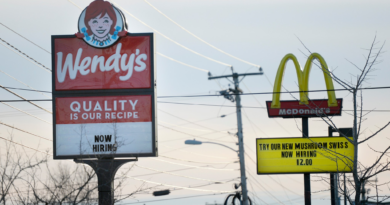Deutsche Bank and HSBC are winning Europe’s AI talent war as the U.K. strikes back against the U.S.
Last year’s U.S. tech grads had scarcely watched their mortarboards hit the ground before they were being swarmed with job offers from Wall Street’s biggest banks. It’s fair to say their peers across the Atlantic have taken a more relaxed approach to getting the talent they need to manage the AI boom.
However, it seems Europe’s financial centers are starting to understand the need for AI talent.
The latest review of the banking sector’s AI capabilities shows U.K. banks have accelerated hiring ahead of their rivals.
The number of AI roles listed by U.K. banks jumped 12% in the first three months of 2024, faster than both the rest of Europe and the U.S, according to the consultancy Evident.
Deutsche Bank and Santander are driving European demand for AI-savvy workers, with Barclays, HSBC, and BNP Paribas also investing in AI talent. Between October 2023 and April 2024, HSBC posted 30% more AI vacancies than other European banks.
Evident’s AI index tracks banks’ success in using the technology through talent, innovation, leadership, and transparency measures. Its latest index shows only one European bank, UBS, is among the top 10 global banks regarding AI readiness.
Detractors would point out that placement results from merged resources following the bank’s emergency takeover of Credit Suisse.
“After a brutal wave of layoffs, AI investment is viewed by the banks as the panacea that will allow them to bring about the needed productivity gains from their remaining workforce,” Evident’s co-founder and CEO Alexandra Mousavizadeh said in a statement.
U.S. head start
The narrative of U.S. banks taking the lead ahead of their U.K. and European peers is a well-worn tale, as is its tech companies getting ahead of its cross-Atlantic rivals in the AI boom.
Speaking to Fortune at its AI Symposium in June, Evident’s Mousavizadeh said U.S. banks made a conscious decision to be “AI-first” early into the tech’s big breakthrough. From this flowed the creation of labs, the publishing of research, al flowing from a dedicated AI hiring team.
This has also led to an arms race among U.S. banks to secure the best talent. Goldman Sachs proved to be a big early loser in that fight as the company watched 60 people jump ship to the likes of Morgan Stanley and Citigroup.
Mousavizadeh says there had also been a big push to recruit talent straight from universities.
Nigel Moden, financial services banking and capital markets leader for MEIA at EY, says that on the other hand Europe is historically less comfortable with the crossover between the tech and finance sectors than the U.S.
It can also be challenging to convince a computer science student to leap into the financial sector and shun the path taken by the likes of Bill Gates and Mark Zuckerberg.
However, the latest data suggest that is changing, with the U.K. slowly closing the early gap created by the States.
EY’s Moden predicts Europ’s big AI deployment will come nearer the end of 2025 after banks have worked out the regulatory environment.
Ultimately, it may not be a bad thing that the U.K. lagged behind the U.S. in the early days of the AI boom.
Moden doesn’t yet see a big gap in the AI proficiency of U.S. banks, suggesting they are simply engaging in large scale experimentation—something that could offer U.K. companies their own chance to poach in the future.
“If you’re an HSBC, or a Barclays, or an ING, then trying to pick up someone who’s had a couple of years with a big US Bank to learn their trade may not be a bad strategy,” EY’s Moden said.




